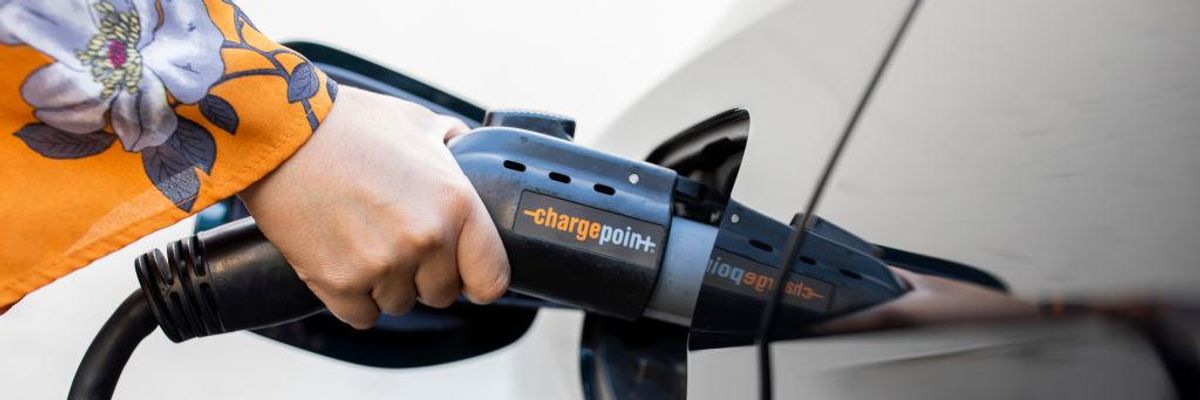This summer, we’ve seen flooding in the Northeast, historic heatwaves in the Southeast, record ocean temperature in Florida, and wildfire smoke from fires raging in Canada. It’s clear, now more than ever, that we need a swift transition away from the fossil fuel industry that has been fueling the climate crisis for decades. A key piece of this transition will be the switch to electric vehicles, or EVs, and demand for them is already rising.
Just last year,
10 million EVs were sold, and it’s expected that sales will jump 35% this year. With EVs ramping up in production and sales, it’s critical that this transition is done sustainably, and that starts with how the minerals needed for EV batteries are mined.
The Natural Resource Defense Council’s recently released
report, Building Batteries Better: Doing the Best With Less, lays out the necessary policies to reduce the type and amount of minerals needed—lithium, nickel, cobalt, manganese, and graphite—as well as limit the harms from battery supply chains on communities, Tribes, wildlife, and the environment. We have the minerals needed to meet the current demand. And as demand grows even further, we have the opportunity to make this transition as sustainable as possible through innovation, mining reform, and battery recycling to create a fully circular economy.
Continued research and innovation will get us to a point where EV batteries are used over and over again, reducing our reliance on mining and making gasoline-powered vehicles obsolete.
The Biden administration has already started making strides to improve the efficiency of EV batteries by investing
$192 million in Department of Energy (DOE) recycling research and technology development. This investment builds on $3 billion in funding awarded to batteries last year through the Bipartisan Infrastructure Law. The Inflation Reduction Act passed last August is also a step toward creating more battery manufacturing and incentivizing domestic recycling.
Continued research and innovation will get us to a point where EV batteries are used over and over again, reducing our reliance on mining and making gasoline-powered vehicles obsolete. The fossil fuel industry is fighting tooth and nail to keep the status quo, but relying on the continued extraction and burning of fossil fuels in our changing climate just doesn’t make sense. The future of transportation lies in cleaner solutions that put communities first.
Community engagement must be part of the process from the beginning to ensure their health and safety. Right now, we are using the sorely outdated Mining Law of 1872 as our standard. It’s time to bring this law into the 21st century and take cues from communities and Tribes on the ground when deciding on new mining practices and projects.
The
Interagency Working Group on Mining Reform—a group of federal agencies and experts in mine permitting and environmental law—was due in July to release recommendations to update the existing Mining Law and regulations. This group must issue their recommendations as swiftly as possible because they will represent a guidepost for not only future legislation but also what agencies like the Department of Interior can do today to improve mining and permitting including more thorough community engagement and waste management.
The Biden administration must urge Congress to take action on mining reform and continue to fund DOE’s essential research to make this transition as clean and safe for communities across the country. We have the tools necessary to break away from fossil fuels, fight the climate crisis, and enter a more sustainable transportation system with efficient EV batteries. It’s time to put them into action.
